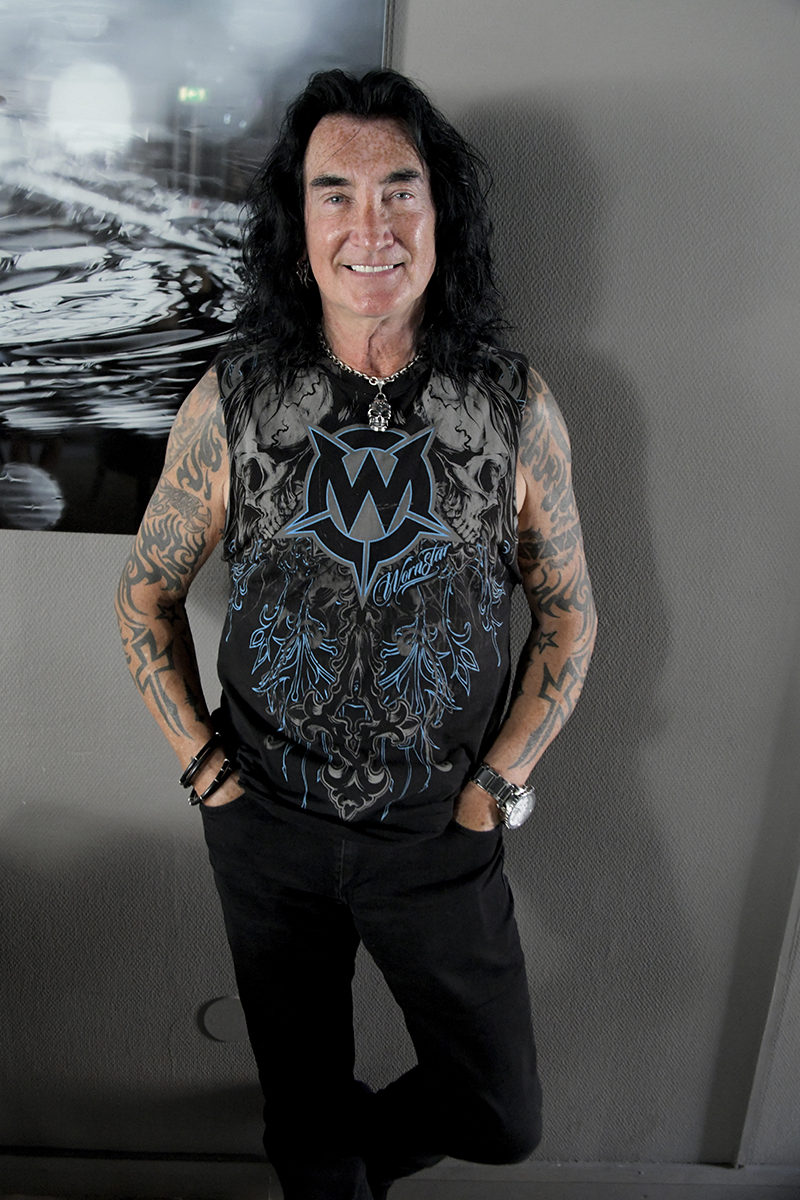Robin McAuley is an Irish singer who currently resides in Los Angeles. He is best known as the vocalist for the rock band McAuley Schenker Group from 1986 to 1993, which saw the band release three highly successful studio albums: ”Perfect Timing,” Save Yourself,” and ”M.S.G.” In 1999, McAuley released his debut solo album, ”Business As Usual,” written and recorded with the help of his future Survivor bandmate Frankie Sullivan. In 2016, McAuley joined Michael Schenker Fest alongside the original MSG singers Gary Barden and Graham Bonnet. The band released two studio albums,” Resurrection” and ”Revelation,” before going on hiatus after Schenker decided to start a new incarnation of MSG with Ronnie Romero on vocals in 2021.
In the past, McAuley has performed with such bands as Survivor, Grand Prix, and Far Corporation. Currently, he’s a member of the supergroup Black Swan, featuring Reb Beach (Whitesnake, Winger), Jeff Pilson (Foreigner. Dokken), and Matt Starr (Ace Frehley band, Mr.Big). The band has so far released two studio albums, ”Shake The World” (2020) and ”Generation Mind” (2022). McAuley’s second solo album, ”Standing on the Edge,” was released in 2021, and earlier this year, his third album, ”Alive,” saw the daylight. There are always a lot of things going on in Robin McAuley’s world. Now I met him at Time To Rock Festival in Sweden, only a few days after he had re-joined Michael Schenker Group, replacing Ronnie Romero on tour.
Robin, you have now re-joined MSG. And, like last year, you joined the band in the middle of the tour, replacing Ronnie Romero. How did this thing now happen again?
Robin McAuley: That was easy. I get an email, “Can you jump in and sing the festivals and shows for the rest of 2023?” And I said, “Let me check the schedule.” We’re about to start working on a new Black Swan and a new solo record, the third of each, and we won’t start working until very late in the year. So I said, “Yeah, sure.” I didn’t ask any questions. And then I saw all of the posts, and I went, “Whatever.” It was the same thing last year or whatever it was. So I’m in for the rest of the year with MSG with Michael for his 50th-anniversary tour. And I’m happy to be here. It’s a lot of fun.
So, is it wrong to say that you’re a kind of savior for Michael Schenker nowadays? [laughter]
Robin McAuley: Oh, I don’t know if I’m a savior, but I’m reliable. I’m reliable.
I have to ask this. Since you joined on tour with really short notice, were you kind of on standby the whole time?
Robin McAuley: No, no, no, no. I wasn’t expecting it at all. I remember when I saw– because this post comes up on Facebook. And I went, “Oh, look, Rory Gallagher Festival.” And I went, “Oh, I’d really like to do that.” Because my wife and I were planning a trip to Ireland to go visit family, and coincidentally, it was at the same time as the Rory Gallagher Festival. So I sent Michael an email, and I went, “Hey, I see you guys are playing Rory Gallagher. I would love to do that if Ronnie Romero needs a break.” And I don’t think anymore about it, right? And then I had a reply from Michael’s people, and they said, “This would be great if you still want to do it.” And I went, “Oh, that’s a nice surprise. I’d love to do it.” And I was only supposed to do just that one show, only because of Michael, right? And it was a good excuse. I went, “I’m in Ireland anyway to visit family,” and we were planning to do some sightseeing. My wife, I think you know, is from Austria, so she hasn’t seen a lot of Ireland. I haven’t seen a lot of Ireland. It’s been a long time, right?
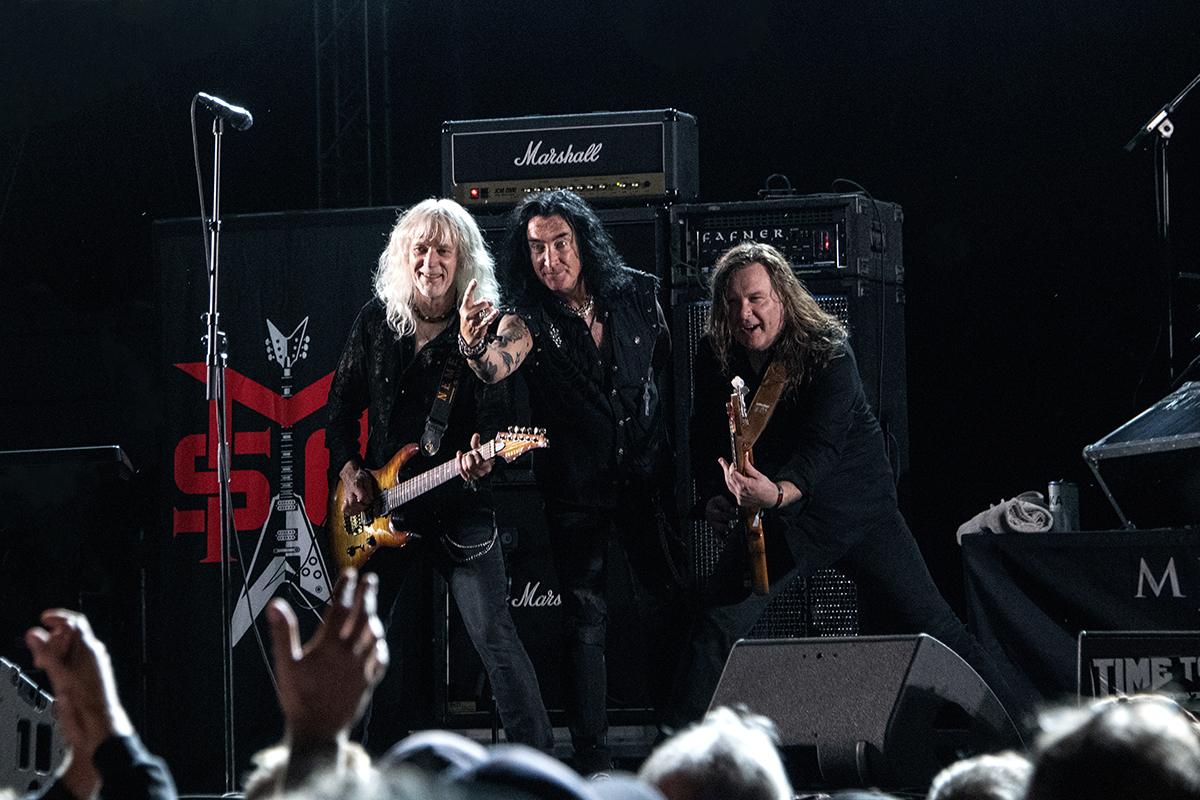
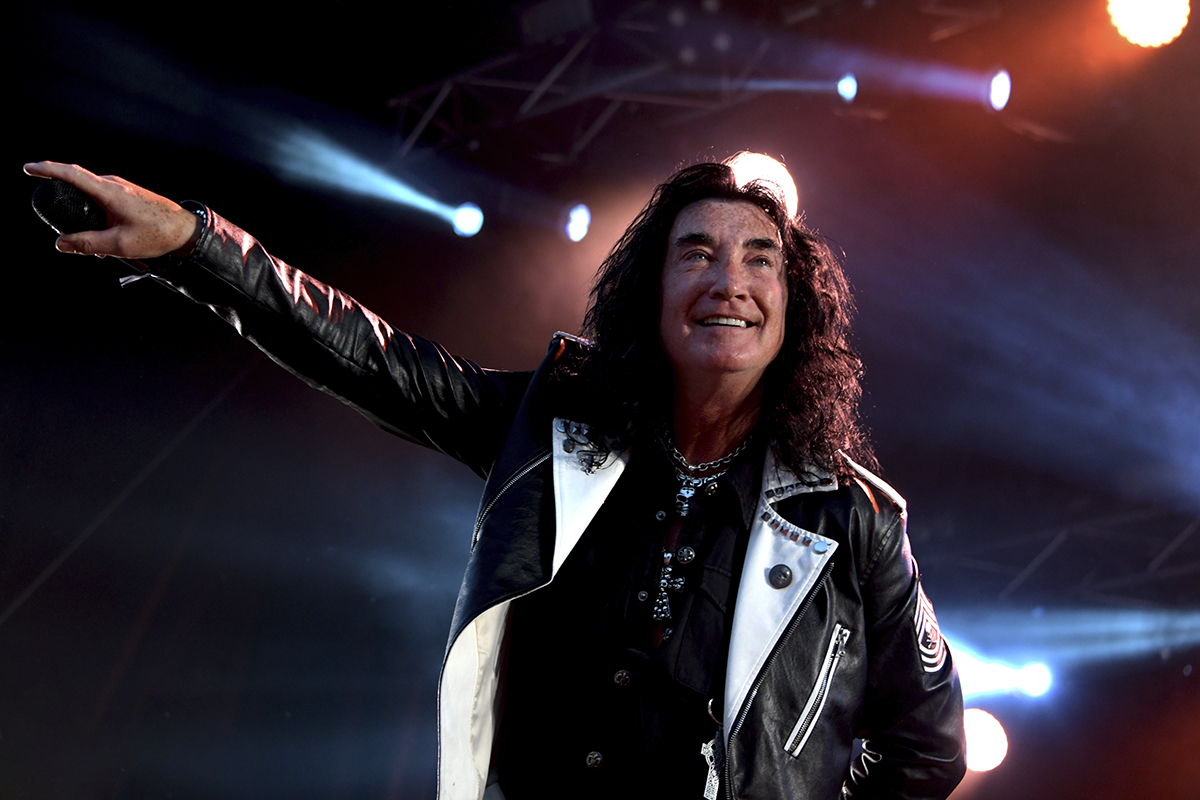
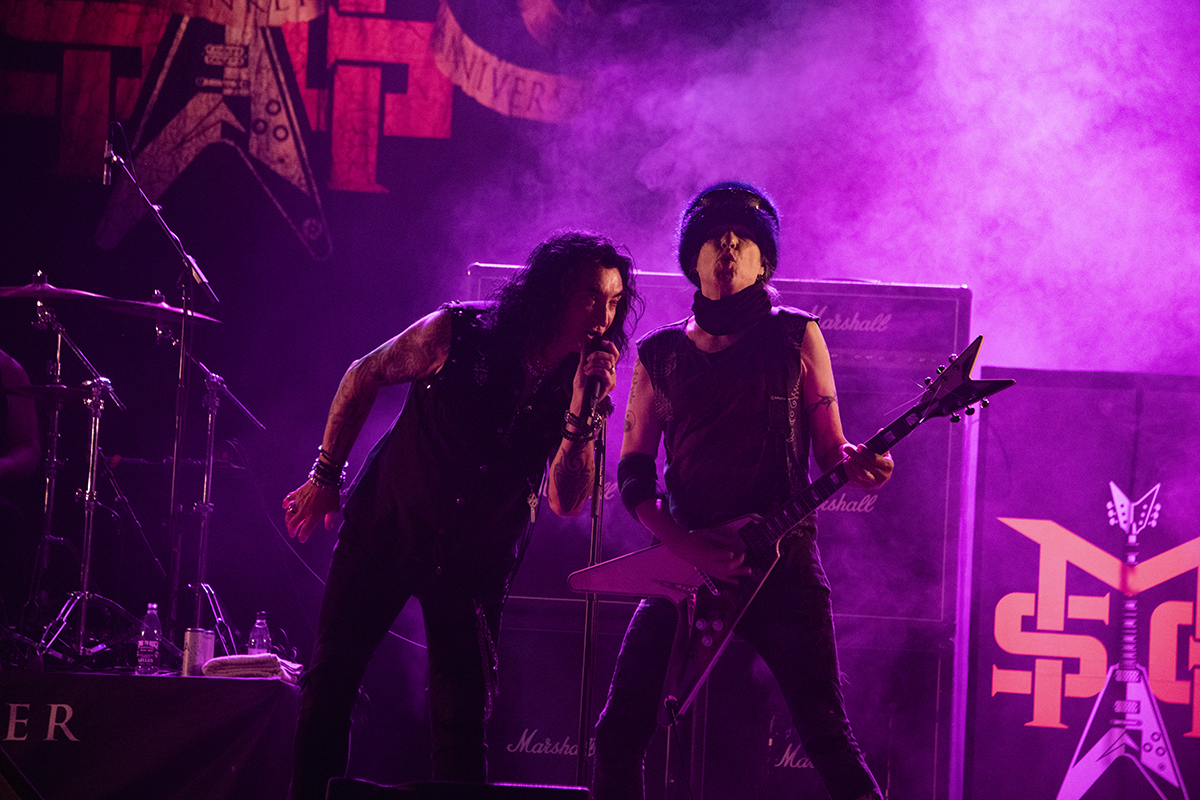
So anyway, after we had agreed that I would do the Rory Gallagher Festival, maybe a month later, I had another email saying, “Hey, can you jump in for the rest of 2023?” And I went, “Oops, what just happened?” And it says, “Ronnie will not be singing with MSG anymore. If you could do it, it’d be great. Michael would love you to do it.” And I went, “Sure.” And I again check my schedule, and we don’t start the next Black Swan record until later in the year. And so here I am. Yeah, so no, I wasn’t prepared. Obviously, you have to check and see what the setlist and what I have to learn and jump in without a rehearsal and all of that sort of stuff. So I actually went through Rory Gallagher without a rehearsal. We just had a sound check, and I went, “Oops, better get this right.” But I’m good at doing my homework.
But the setlist is now pretty much the same as it was last year.
Robin McAuley: Correct. It’s very similar. So, it was just a matter of revision. Getting ready for the exam.
Now that you are back in the band again, it would have been great if the setlist had included at least a few songs from the McAuley-Schenker Group era.
Robin McAuley: Everybody says that. I don’t know why that is, but since the live set is rehearsed already and this is what they’ve been doing, it would, logistically, probably take a couple of weeks of rehearsal to come in and start rehearsing newer material. Not that it’s new material, but you’d still have to rehearse it and change the show or add it or whatever. So it’s easier just to do it this way. And if Michael decides that “Okay, we’re going to add some of the McAuley Schenker period.” then I’m assuming that there would be a rehearsal for that. But right now, we need to do what we were doing before. So usually, it’s pretty good. We learn a two-hour set. And it’s a year since I sang the set, and you still have to come in and prepare and do your best. And it’s not always perfect, but it’s live.
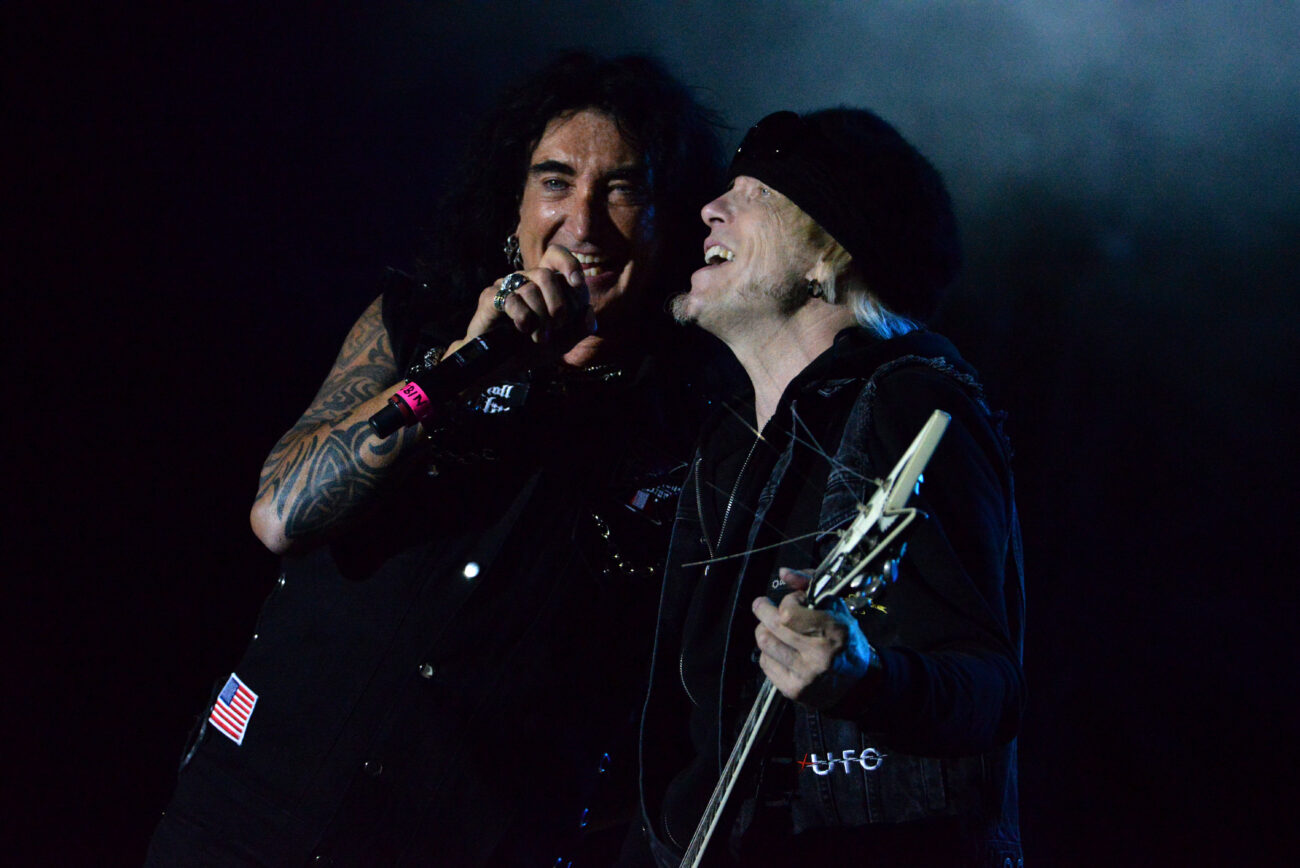
FUTURE WITH MICHAEL SCHENKER?
So, as you said earlier, you now have a deal to tour with Michael until the end of this year.
Robin McAuley: Yeah.
What about after that? Have you talked to Michael about it?
Robin McAuley: Ask Michael that question. I don’t have an answer to that. All I know is that I committed to the rest of the year, and I will finish it out. I won’t be going anywhere.
But would you like to do more things with Michael in the future if you had the chance to do that?
Robin McAuley: Well, of course. Absolutely. I mean, I keep telling people that Michael is without question one of the best rock guitar players on the planet. After 35 years of standing on stage with him, I’m still in awe. His level of playing is phenomenal to watch and to be up there on stage, I go, “Damn, this is cool. It doesn’t get much cooler than this.” And he’s amazing. He’s amazing because I know a lot of people put a lot of emphasis on age and everything. Attitude has a lot to do with it too, and it’s where you are in your place. There’s a lot of pride in what we do, I think. And I always tell people that as a singer, I can see a lot that’s going on. And if I see people whispering going, “Shh, this guy can really play.” I’ll hear it. And I don’t want that to happen a lot. I don’t want to get too much pride for that. So I do my best. And I know that, yeah, I would love to make another record with Michael or whatever he’s got planned. If it’s a tour and I’m free– Black Swan and the solo record, they don’t tour. So there’s a recording period of time that that’s involved, but it’s the same with Reb Beach and the same with Jeff Pilson. We find time to record, but we don’t have the time to play live because we have all of this other stuff going on.
That’s sad because Black Swan would be a killer live band.
Robin McAuley: That’s sad because, I know, Black Swan live would be pretty cool. It would be pretty cool.
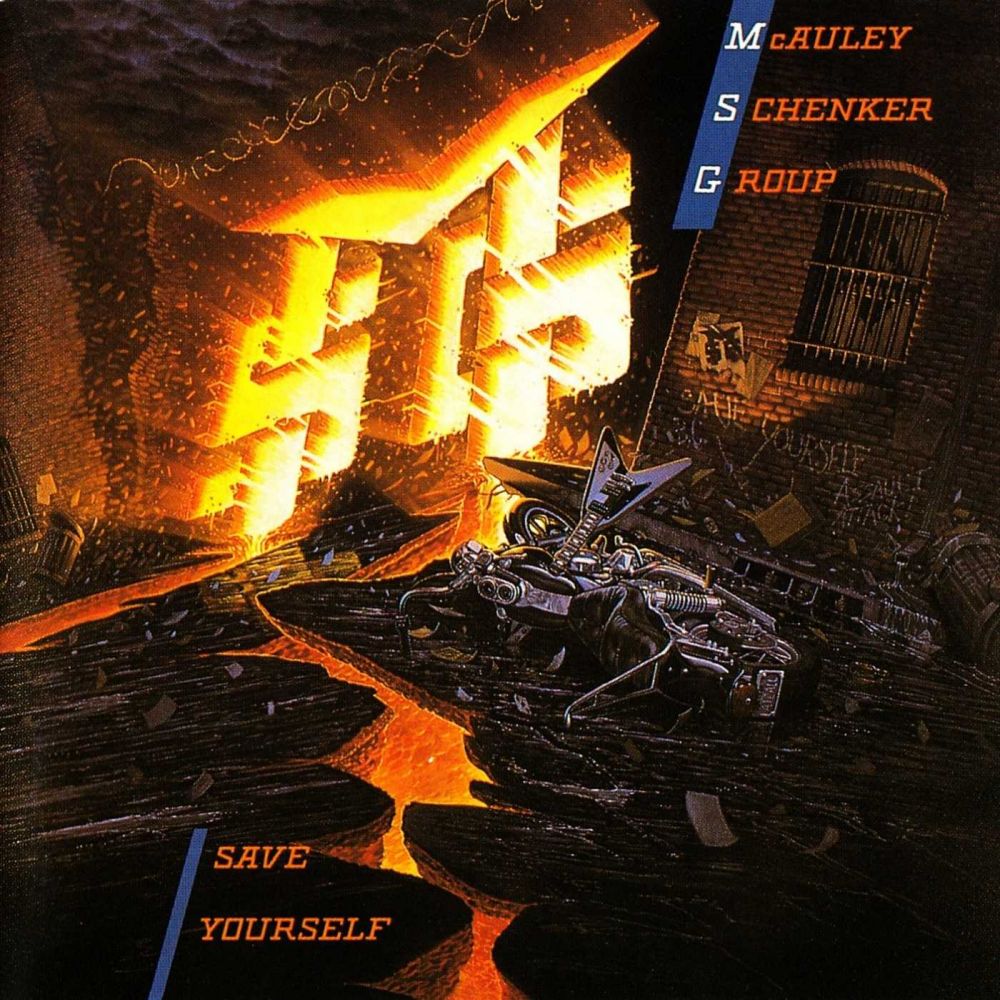
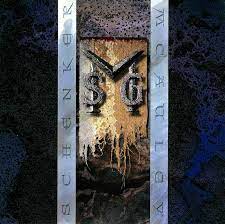
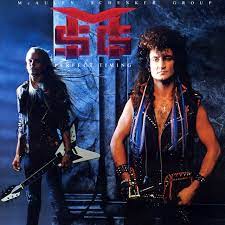
It’s been two years since you released” Standing On The Edge,” and now you have released another new solo album called” Alive.” Tell me something about this new Robin McAuley album.
Robin McAuley: It’s a really good record. [laughter]
Was it any different to work “Alive” compared to the “Standing on the Edge?” You had worked with the same team of people before, so you knew how the process works, etc. So was it any different to work on this album compared to the first one?
Robin McAuley: Different? It was different because I had discussed more details with Alessandro Del Vecchio, who produced and mixed the record and does a lot of the co-writing, and we both decided that I wanted it to– see, ”Standing On The Edge” was basically– I didn’t want to do ”Standing On The Edge.” I didn’t want to record a solo record because I told Frontiers, “Who’s going to listen to it? And why would I bother? It’s a lot of work.” And really didn’t know what to do. So I started to work with people that I had worked with in the past. And so Frontiers said, “Well, do a little flare of maybe some sort of a Survivor sound, a little bit MSG sound, a little bit whatever else you’ve worked on, some of the Grand Prix sound.” So I started working with different people. I gathered 12 songs and tried to get a cohesive sound; put it out. But when we came to ”Alive,” we wanted it to be a little bit more concentrated and more focused and harder edge, and I think we achieved that. And the next one, we’re going to get a little bit harder still. A little bit more edgy, a little– some different sounds on it. And there are a couple of new writers involved. Guillermo De Cuomo who works with one of the former Nightwish singers, Tarja Turunen. And he’s an amazing writer. So I’m looking forward to that just, again, taking it somewhere else. I’m shocked that they want to do a third solo record. So let’s begin with that. It’s like every time they go, “Hey, we want another record.” I’m going, “Why?” ”Laughs” But I really like how ”Alive” turned out. It’s a good mixture, and, again, it’s another stepping stone, and I had fun doing it.
It’s a shame that we don’t tour. Because I think that’s the only way that you can– you get an advance. You make a record, and you do the best that you can. And there’s a sort of an empty space simply because you never get a chance to take what you’ve recorded onto the live stage and really see how good the material is in front of a live audience. So I miss that part of it because you never really get a chance to find that out. It’s different when you’re in the studio. It’s the same with MSG. You make a record, and you go, “This is great.” And then you go out live, and you’re going, “Eh, this didn’t go down too well. That wasn’t so good. Maybe we shouldn’t.” And so that’s where the live show makes that extra step in the whole process. So you have to kind of– I don’t like just going, “Okay, let’s make it heavy.” for the sake of making it heavy. Songs are really important to me. That’s the first thing. In production, you can make anything heavy, but making a bad song heavy doesn’t make it a good song. So we tried to keep good songwriting. And we do the same with Black Swan. If you work with Jeff Pilson, or if you’re working with Reb Beach, there’s a lot of pressure right there.
A lot of pressure right there. And that’s a great process because these guys are good. These guys are really good. So I tried to take a little bit of that with me into the solo aspect of things. And I usually have 15, 20 songs to pick from, and then it’s a matter of balance. And yeah, I’m happy. Because the first part of live, almost like side A to side B, you can feel the transition from the heavier end to the slightly more classic, and there’s always the power ballad because they go, “Where’s the power ballad? We need a power ballad.” And it’s like you make one power ballad like ”Anytime” or ”When I’m Gone,”then everybody wants to power ballad, so. But I enjoy doing it. It’s a comfort zone for me there.
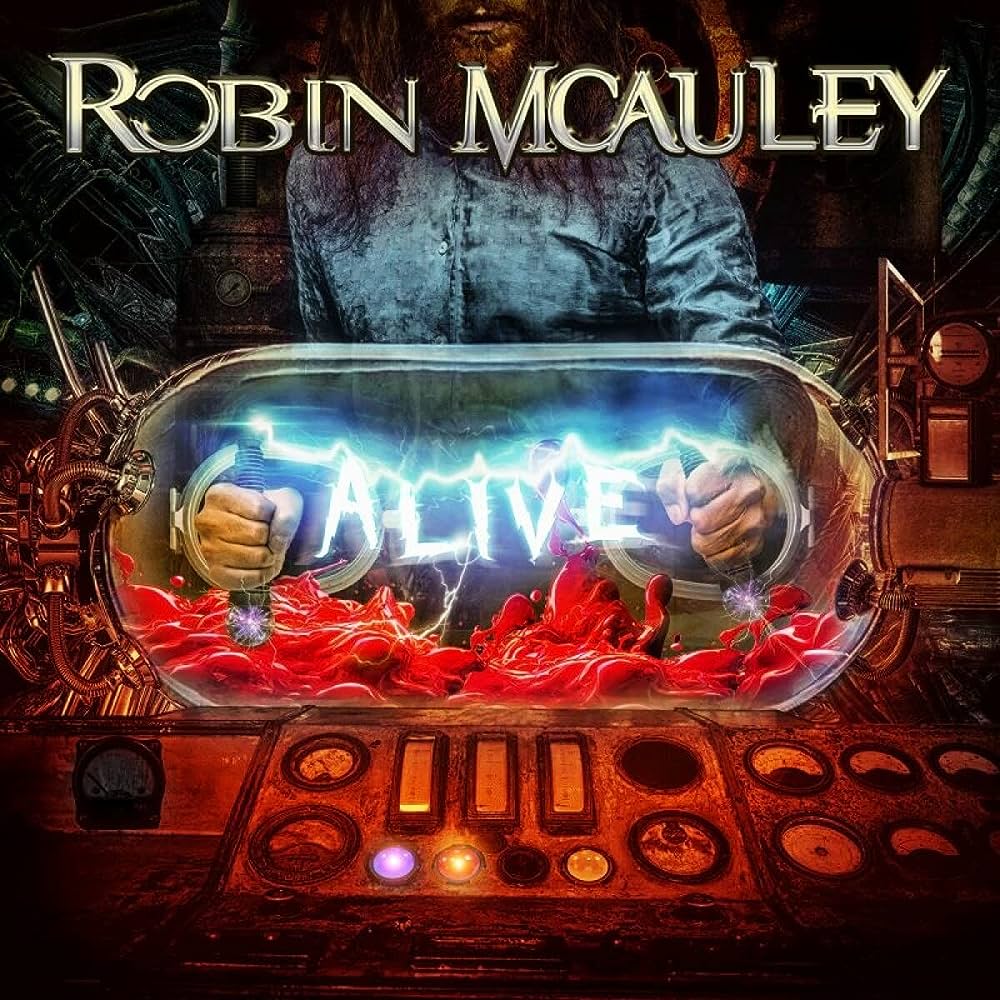


Speaking about the songs, I think that the title track,” Alive,” is a very powerful song, and it kind of represents the entire album. Tell me something more about that song.
Robin McAuley: Yeah, I would love to play that live. I really would love to play it live. Usually, the process very simply is that we discuss what we’re going to do, and I like the music to be very, very basic when I get the ideas. Very basic. No lead breaks and very little keyboards; I like to hear the rawness of what’s in the song. And “Alive” was the first one that I wrote, and it came together kind of fast. I could just hear it. And it’s the whole song is, basically, it’s an uplifting song. It’s like you can knock me down– it’s kind of in the face of adversity. It’s basically supposed to be a very positive song that you can throw anything at me. And I suppose everything that we’ve gone through in the last few years, the world had everything thrown at them, and I guess I kind of reflected on that a little bit and used different kind of lyrics. You can knock me down, but through it all– we are very resilient as a human race, and that’s really what the song was about. I wanted to create something positive, and the rest of the record just kind of followed it.
Yeah, like I said, it’s the key song on the album.
Robin McAuley: Yeah, it was great. And so when I finished it, I remember sending the rough version to Alessandro, and I went, “I think I have the opening track. And I think we just follow it with the rest of the songs.” And he goes, “It sounds awesome.” So we discussed the production and all of the little things. Plus, I can never say enough positive things about the guitar player. Andrea Seveso, he’s awesome. And I told Alessandro before we started the next record, I went, “You know, he’s my guitar player.” And he goes, “He actually considers himself your guitar player.” And we thought that we’d be able to go live this year because there was supposed to be a Frontiers festival, and it didn’t come together, which was a shame. And I actually wanted to try and go out together with Hardline. Johnny Gioeli is a good friend of mine. And now that Alessandro has his Edge of Forever, I thought it’d be a nice package. Plus the fact we could use a core band for the whole thing. And so, cost-wise, it would’ve made a lot of sense, but it didn’t happen.
There’s always an obstacle. And people think, “Well, just go play live.” There’s so much involved. I live in the States, and the rest of the band lives in Italy. Logistically, it’s difficult. You have to rehearse, and it’s costly, and people don’t really understand that. They think like, “Just go do it.” And promoters need to know if you are going to do a show and you sell tickets, and so much involved. So yeah. But at least we got the record done.
Another song I want to pick up from the album is ”Feel Like Hell.” This song presents the heavier side of the album, and it was something you wanted to do this time around.
Robin McAuley: Absolutely. That was the whole idea. It was the whole idea. We started with that in mind. And I said, “Just forget that we ever did on ”Standing On The Edge,” let’s have a fresh cap and a fresh set of thinking, and let’s approach this with a very fresh attitude.” And that’s kind of how we got into it. And we didn’t talk about it after that. We just went to it, went to work.
The album also features one must-have power ballad, “Can’t Go On.”
Robin McAuley: Yeah, there are a couple of guys out of Sweden, Ulrick Lönnqvist and Pete Alpenborg. And they co-wrote some of the songs on the ”Standing On The Edge” record, including the song ”Standing On The Edge.” And they sent me an–, and Ulrick is hilarious. He calls me like, “Oh man, I’ve got these great songs.” And I went, “Stop calling me.” And then he sent me the music for what became ”Can’t Go On” And I went, “Okay, I’m going to do a rough demo on this and send it back to him.” And he loved that whole middle A section so much. He goes, “Promise me you won’t change this section.” And I went, “I won’t change it, I promise. I love the power ballad.” So I have a lot of fun doing the power ballads. I don’t want to say it’s easy for me, but it’s, what we say, it’s my wheelhouse. So I feel very comfortable doing that. And it’s a great song. Also, it would be really cool live. I think it would be great with an orchestra.
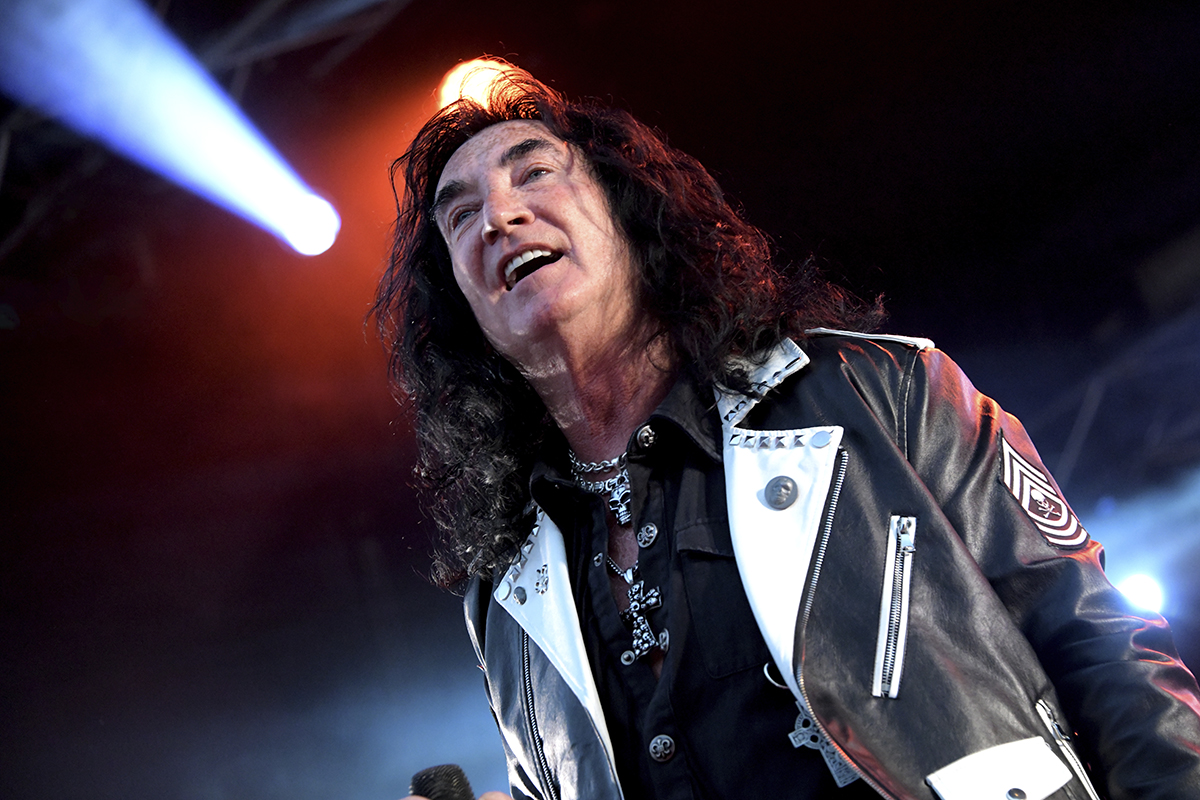
Tell me something about the promotional videos you did for the album. Those are kind of modern and futuristic.
Robin McAuley: Yes. So Frontiers has this wonderful photographer, Enzo Mazzeo, and he worked with me on Black Swan, and he did all my solo stuff for ”Standing On The Edge.” And he was the photographer, and now he is the videographer. He owns his own production company now, and so we had the same production company for the Black Swan records and the same videography director that we used for Black Swan, and we used him for the solo stuff. So for the live record, there was just Enzo, Eric Boadella, the director, myself, and two other guys that kind of brought a few lights, just one camera, and that’s how we shot it. We wanted it sort of raw, not too much. And then I had all of these– Enzo comes to me, and he goes, “Okay, tell me all the crazy shit that you want.” And I love coming up with ideas. And I usually end up designing the artwork as well. And I work with the art directors, and I send them all of these roughs, and they think I’m crazy, but they manage to bring the craziness onto the cover. And ”Feel Like Hell” video was hilarious because we shot ”Feel Like Hell” on Hollywood Boulevard very late into the evening because that was important that we got the evening lights, and we shot it on the streets with lots of fire engines and police cars.
And so we had a ready-made backdrop, and it’s funny because I think it was like four days before Christmas Eve when we shot it. And Eric said, “We have one more scene.” and he goes, “I’m going to chase you up the street, and then just at the last minute when I give you the cue, you turn, and you look straight at the camera, and then we’re out.” And we’re done, right? We were shooting for maybe three or four hours, just me, and that was really awkward to me. It’s really, really awkward when it’s you because there’s no band around you. So I’m running up the pavement, and I think it’s like 11:30 at night. It was really cold. And for LA, it was really cold. And I made a little turn to face the camera, and my feet didn’t move on the concrete. So my knees moved, and he said, “Oh my God.” and I hit the deck. I fell. And basically, I went to do a little swivel, but my shoes didn’t move on the concrete, but I threw my knee out. So I was limping for about two months after that, and we missed the last scene because– we couldn’t get the last scene. I was limping all through Christmas. I had to have X-rays. I had to wear a knee brace. And I’m going, “Are you kidding me?” But we got it done, and we had plenty of footage.
And that really was all to do with two versions of myself. So the whole video was me arguing and chasing myself up and down the street. And we had some perfect lighting, one camera, and street lights. It was just great. So we had a ton of fun doing it. And great, because there’s not too many opinions. We have an idea, and there it is, and you can see it in the– it worked. And the whole art cover, I love– I keep telling people, I love old Hollywood movies. I love old vampire movies. I love old Frankenstein movies. And that was the idea for the whole cover for ”Alive” was that I wanted it to be like an incubator. And when I first gave it to the artist, he came back with an incubator, and he had a baby inside, and I went, “No, no, no, you can’t have a baby with all of the abortion rights that’s going on.” I said, “This is very controversial. We have to get rid of that.” And basically, we had the idea when we did the photos that we would have all of this electric energy coming through. And that’s what it was. We started like this. And then we started to open out to we had the phone charge. And that’s really what it was, bringing the music. We were just having a little fun. And I always say, Marko, “If you can’t laugh at yourself, you can’t laugh at anything.” So I don’t take it too seriously.
Your first solo album, “Business As Usual,” was released in 1999. On that album, you collaborated closely with, for example, Survivor’s Frankie Sullivan. Could you tell me a bit more about that somewhat overlooked album?
Robin McAuley: So, ”Business As Usual” was never meant to be released as a solo record. So it was like 1994, and McAuley Schenker came to an end kind of ’92, ’93. And then we had alternative music, and we had grunge music, and in that period John Kalodner, that worked at Geffen, he initially called Ricky Phillips of Bad English, and he said to Ricky, he said, “Hey, you should get together with McAuley and see what you guys can come up with.” And Frankie Sullivan heard about it. And he heard the same thing, and he called me, and he goes, “We need to get together and do some writing.” And that’s how that started to happen. So we got together, and there was another writer involved, and we just wrote all of those songs supposedly for a rock album. We had no name. We had no real idea other than just a writing session; see what we would do. And during that writing session, Frankie must have asked me a hundred times to join Survivor. And I said, “Nah, Survivor is a pop band. I don’t want to be in a pop band.” And he would say, “Nah, it’s a rock band.” And I went, “In your mind, it’s a rock band, but in mine, it’s not.” So we would play with this, and we really couldn’t get anybody interested in those songs. And so it just sat around for, I think, a year or something. And then, a Japanese label decided that they wanted to do it. And, of course, now grunge is turning into alternative music. So now there’s another switch going on.
And slowly, slowly, the ’80s was sort of hiding in the background. It never really went away, just the record company; they weren’t interested in that sort of sound. And so it came out only in Japan. And very soon after that, actually, I actually joined Survivor. And I was with Survivor probably for six years, and I played live with them for about five years. And then they decided to have a reunion with the two original singers, Dave Bickler and Jimi Jamison. God rest Jimi’s soul. Amazing singer. And so that’s really how that happened. When they said, “Hey, we want to release this.” Frankie goes, “Why don’t you just put it out as a solo record.” And I went, “Eh.” And Gilby Clarke’s wife actually did the photo shoot. And I decided to call it ”Business As Usual” while I was still working. And kind of also around that time, there were no offers. There was nothing going on for ’80s-style rock, really. And I actually stepped out of the music business, and my wife got pregnant. We had twin boys. And I stayed out of the music business for a bunch of years because I wanted to be around my kids, and that was another transition. I started to work in an art department and doing graphics, and I went back to college, so I had a regular paycheck. I had medical and dental, and vision for my kids.
And people were calling me going, “Dude, how did you do this? I can’t get a job. You have a regular pay and a regular check.” And I go, “You need to get up off your ass and do something instead of just waiting for the phone to ring.” And I took evasive action, and my kids always came first. And I remember that I was in Japan. And I took ”Business As Usual” live in Japan, and while I was away, one of my boys, my son Jamie, he started to walk. And I was so disappointed that I wasn’t home to see that, but when I came back, I went, “Forget it.” And I literally pulled the plug, and I went, “I’m not going back out until I see my kids walk, and they’re old enough.” And they were five when I got all the emails from Frankie Sullivan going, “Are you ready to do this now?” And I remember going to Chicago, and I rehearsed about 30 songs. Four days later, he calls me, and he goes, “We have a festival show booked. Are you ready?” I’m going, “I don’t even know the songs. I don’t know how you end the songs.” And so we played with Eddie Money in front of, I think, 25,000 people, and I had no idea what I was doing. So we started this interview by asking if I’m prepared for Michael Schenker. And I’m going, “You’re never prepared enough.” But we went out, and we did it, and I was there for five years doing shows with Survivor. And we do it because this is what we do.
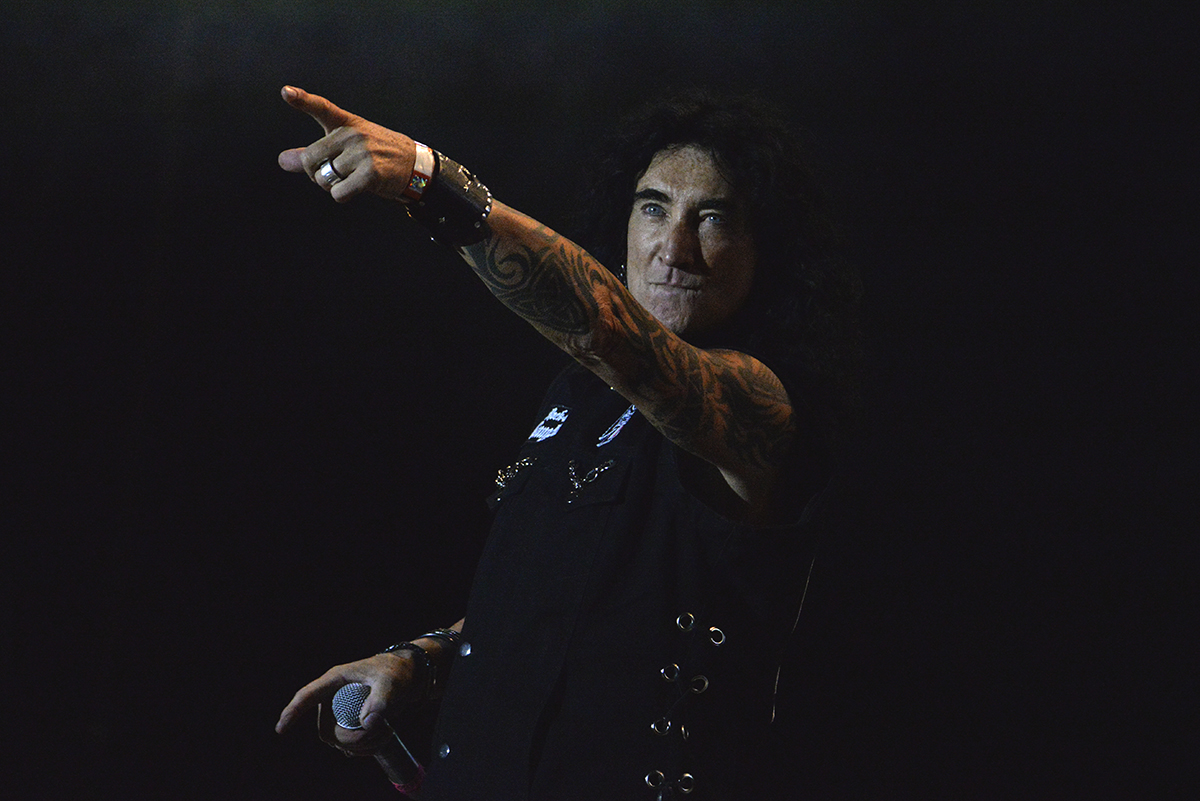
Did you ever have plans to record original songs with Survivor?
Robin McAuley: We recorded a whole bunch of songs. And we never got and took it to the next level. But we did. Yeah, we went into the studio a number of times. I remember we actually re-recorded ”Eye Of The Tiger.” And after I recorded ”Eye Of The Tiger” with my voice, I was only in the band for about a month. And then Frankie called me, and he said, “Hey, we’ve been invited to perform on Dancing with the Stars.” And I’m going, “What do we do with Dancing with the Stars?” He goes, we have to go on and play live. And the truth is, I was the only one who was live – I was live – because it’s too difficult on TV to play live. So everybody else played to track; I actually sang. And all of the dancers had all of this Rocky boxing stuff on. And American Idol was at CBS Studios, right across in the other studio, and Dancing with the Stars was on this side. And the program director came to me five minutes before showtime, and she said, “Dancing with the Stars” just took the number one place in viewers, and we have 58 million viewers tonight. No pressure on you,” [laughter] and I almost shit myself. And that’s the truth. And that was my introduction to Survivor, really. In front of 58 million people, live on TV. So yeah, you’re never ready. “What do I wear?” [laughter]
Woah, it was a great story. I actually saw Survivor live in Sweden with two vocalists years ago. And that was only a few months before Jimi passed away.
Robin McAuley: When they brought the two singers back in, they were only in for, I think, almost not even a year. And I was very, very sad to hear about it because Jimmy’s voice was just– the golden voice, they called him. He was just amazing. I used to have to sing all of those songs from both of them. We would do it all, the Dave section and the Jimi section. And last year, actually, there was great classic rock shows, it’s called Icons of Classic Rock. And they invited me because Dave Bickler is part of that. And he got sick, and I got a call from the promoter, the producer of the show. And he said, “Dave is sick. Would you be able to–” Oh, and it was right when I actually shot the video for ”Alive.” So I shot the video for ”Alive” on a Monday. And it’s Monday afternoon, and I get a call from the producer of Icons of Classic Rock. And he goes, “Hey, what are you doing Wednesday and Thursday? Can you come to Bolivia?” And I go, “Man, I’m shooting a video, and I don’t know if we will have to shoot for the rest of the week if we don’t get all of the footage because their producers are off doing something else, so we can do a little bit today and a little bit tomorrow.” And he goes, “Oh, man, Dave said I should call you because he’s not able to do it. And you’ll be singing all the Survivor songs.” That’s about six or eight Survivor songs. And I went, “Ah, man, I haven’t sung those songs since 2000.” And he goes, “Can you start listening?” [laughter]
So Wednesday morning, I was on a plane to Bolivia. And oh my God, we did two shows in Bolivia. There was thousands of people, and it was just incredible. The band was awesome, and I got to go out there and sing these Survivor songs, ”Eye Of The Tiger,” ”Burning Heart,” ”High On You,” and ”I Can’t Hold Back.” And I went, “My God, these songs are great songs. I mean, such great songs.” And I might do it again. In fact, yesterday, I had a call, “Hey, we have a whole bunch of shows coming up. Would you be available?” I don’t know. [laughter] So again, it’s never over. It’s never over. It’s beautiful. I love it.
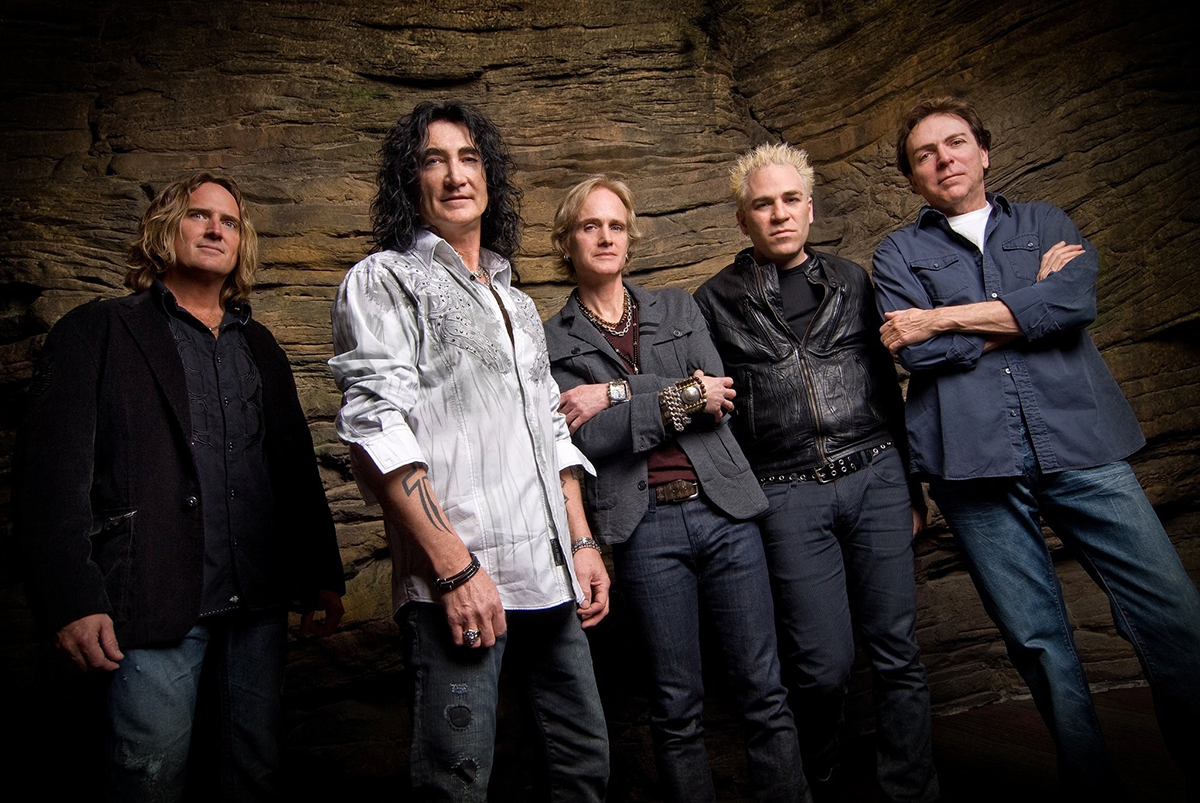
Next on my list would be Black Swan. The band has released two albums so far, and the third album is already in the works. Black Swan is apparently not just a basic Frontiers project band but much more if I have understood correctly.
Robin McAuley: It’s just a great band. I want to call it a band. I hate when people refer to it as a project because it’s deeper than that. We don’t just get together and go, “Yeah, that’ll do. That’ll do. That’ll do.” We really get into it. And Reb is such a great– oh my God, he’s such a great player. He’s a great player. And Jeff Pilson was my best man, right? So I’ll be married 30 years this year. And Jeff also played on MSG’s ”Unplugged” -album. So I’ve known Jeff a very, very long time. So Jeff called me on the Black Swan, and he said, “Hey, Serafino said that you don’t want to do a solo record, but he wants me to put together a supergroup.” And, of course, I started laughing, and I went, “Jeff, you know I don’t like supergroups. It’s all BS and blah, blah, blah,” He goes, “BS. BS.” So that became a little catchphrase, “No BS in Black Swan.” Black Swan, B-S, right? He goes, “No BS in Black Swan,” and that became a catchphrase. And he said, “I spoke to Reb, and we want you to do it.” And I said, “Are you playing bass?” And he said, “No, I’ll produce, I’ll co-write, but I want to produce. I want to stand back and–” I went, “Well, I won’t do it then. If you play bass, I’ll do it. And you can still produce.” So he goes, “No, no, no, I have a whole bunch of bass players and drummers and everything lined up.”
So Reb and I started to work together with Jeff. Reb and I would be going– and eventually, we just beat him up in the studio, and we went, “Come on, Jeff. These bass parts are great. You’re not going to change them. We don’t need another bass player because you’re just going to show him what you’ve already played.” And he goes, “Okay, whatever,” so. Kip Winger actually came up with the name Black Swan because we came up with a list of names, and they were terrible names. They were awful names. And Reb was talking to Kip, and he came up with the name Black Swan because it was kind of tethering around sort of the pandemic period. And Black Swan is when the economy is– so it all kind of made sense. Not a lot of people realize that black swan means other things; it’s not just about a bird, right? And so we made ”Shake The World.” And I thought that was a great record. And I would tell everybody it’s the best record I ever made. And it was just so much fun to do it.
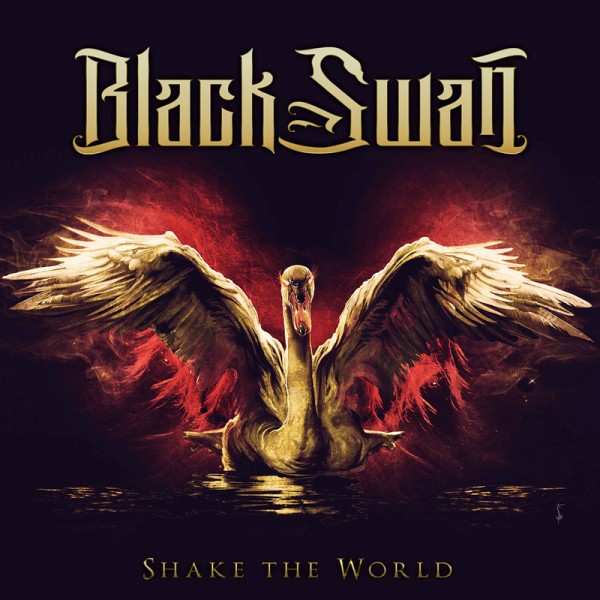
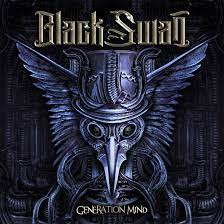
“Shake The World” was a good album, but I have to say that the second one, “Generation Mind,” was even better because it sounds more like a band album. In my books, ”Generation Mind” was one of the best hard rock albums released last year.
Robin McAuley: Thank you. I mean, a lot of people said, “This sounds like a band more than it does another Frontiers project.” And that was something that we really wanted to make sure. And when we got to ”Generation Mind,” we were comfortable, and we had an absolute blast doing it. And the process was great. It’s the usual stuff. They hit me with so many songs, so much music. And I get together with Jeff, and I will sing down the melodies, and we start moving stuff around. We go, “Okay, we’re ready. Record it. Another track.” And that’s how we do it. And it’s great. And my son, Casey, he sings backing vocals like he did on ”Shake The World.” And he sings on the ”Generation Mind”, and he also sings on my solo records. He loves doing it, and he’s a great guitar player, so he needs to practice more.
You said earlier that Black Swan can’t go on tour, but what about playing some individual shows? Would that be possible? I would to see Black Swan live sometime.
Robin McAuley: Yeah, so would I.
As you know, Foreigner is now on their farewell tour, and Whitesnake is also winding down. Doesn’t that mean that there will be more space in the Black Swan member’s calendars in the future?
Robin McAuley: Oh, I’m thinking. [laughter] Yeah, we always used to think that the perfect scenario would be the festivals because that way, you don’t have to be out all the time. You don’t have to tour if you will, but you’re in the same place with a lot of people at the same time. It would be the perfect way to introduce Black Swan. Do a couple of big festivals. You get a lot of people in the same place at the same time as opposed to going out on a tour that could be like this. And it makes sense. So we were hoping also that with the Frontiers festival, we would have been able to do it. That didn’t happen. But it’s coming. It’s coming. I hope it’s coming. If I’m not too old. [laughter]
I interviewed MSG’s guitarist Steve Mann in Helsinki last year, and he mentioned then that you two have plans to make an album together at some point. Has that plan progressed in any direction?
Robin McAuley: Yeah, we had discussed it with an English record label, Escape Music. And we just got so busy that we haven’t really had the time to do anything. And it’s kind of on the back burner, as they say, so. At some point, we’ll probably get to it. Right now, there’s just so much other stuff going on. It was just an idea that Frontiers had because I record a lot of tracks for Escape Music. And we have a couple of records out, “Circle of Friends” and there is “Turkish Delight”. And I have tracks on both of those records. And now I’m also on the lead track with Gabrielle de Val out of Spain. She has a solo record out, and I actually sing the lead track, ”Kiss In A Dragon Night,” with her on that one. And it’s all Escape Music. And a lot of the time, he had Steve mix some of the tracks or play keys on some of the tracks. So, Steve works with us a lot of the times, and they had the idea that we should make a record. And we said, “Yeah, let’s do it.” And I guess we’ll get to it at some point.
This thing just came to my mind out of the blue, but I met your old friend Mark Boals in Helsinki a couple of months ago.
Robin McAuley: Ah. Oh, in Helsinki. I saw he was there, yeah.
We then discussed various things, including the rock musical “Raiding The Rock Vault.” Is that show still running, and if so, are you still involved with that?
Robin McAuley: That show is still running. So I was one of the original members of Raiding The Rock Vault for– I stayed in there for seven years, and I performed about 1,500 shows. And used to work five– well, we used to work six nights a week. And then, right up to the pandemic, we were working five nights a week. And I don’t live in Vegas. I live in LA. So I would travel in and out of Vegas. I’m only at home for two days. And my boys were 14 when I started. They’re 24 now, right? But they were 21 when the pandemic hit. And once I was home, to be honest, I just said, “I don’t want to go back and do that. After 1,500 shows, I think it’s enough.” So they started changing, getting the second cast and the third cast. And Mark used to live in LA, and then he moved to Vegas. And so he came in on the show. And then, at some point, he was no longer in the show. But I was there for seven years. And I’ve done a lot of work together with Mark. And he’s on a lot of the Escape records, also. He’s a great singer. He’s a great singer. And we go to the same church. True. [laughter]
That was real inside info. [laughter]
Robin McAuley: A little insight information. And he sings for the church, too. I don’t know if– people don’t know that. [laughter]
It’s time for the last questions. You just turned 70 years old, didn’t you?
Robin McAuley: Yes, I did. Woah, I’m 70.
Is age just a number for you?
Robin McAuley: Well, I can’t get rid of the number, so it’s a real number. When I was in– I have to say this: when I was in Ireland with the Rory Gallagher festival, I would always stay with one of my younger brothers, right? And his name is Patrick McAuley, but I’ve never called him anything else other than Packey. So my brother Packey, he was sitting one night, and we were having a few whiskeys. And he said, “Do you know–” and he’s like two years younger than me. He said, “Do you know in 10 years, we’ll be 80?” And I’m going, “You better pour another drink.” He actually called me this morning, believe it or not. And I don’t know what to tell you. I always thought I would retire from music when I was 40. So I guess I’m 30 years late. [laughter] I feel pretty good. My voice is still good. I still love what I do. I love to perform. I like the whole rush. It never gets old for me. There are some things about the business I just don’t like. The politics behind the business and all of that stuff, I really stay away from. I’m here for the music. And I like to work with people I like to work with. And that’s, I think, what keeps me going. If there’s a situation that’s a little uncomfortable, it’s not worth the hassle for me. I don’t want that. I need to wake up and go, “I’m looking forward to this,” not, “Ugh.”
So that’s what keeps me going. My wife is extremely supportive of what I do. If I’m home for too long, she goes, “Shouldn’t you be doing something?” [laughter] And she loves having me home. But she knows that if I’m home for too long, I’m going– yeah, and she goes, “It’s time. You better get out there.” And more than before, now that our boys are 24 and they don’t live at home anymore, she gets to travel with me a little bit more. She is a very, very, very busy woman. She is a director for an eating disorder company. And throughout the pandemic, she also studied really hard and became a nurse. So she’s very, very busy. But we valued this time. And so I like– well, she’s not with me on this one, but she likes to come out. She likes soundchecks. She’s not big on the show, but she loves everything, the craziness of a sound check, and she loves TV studios because it’s crazy. She likes to see all of this, cable and all of that sort of equipment and stuff. So she loves behind-the-scenes stuff, and she’s very supportive. So 70, you can take it any way you like. I can’t change it. Well, somebody said 70 is the new 40. And I went, “Okay. Okay. I don’t feel like 40, but okay.” [laughter]
If you think about the guys that started it all, the whole rock music thing, they’re still doing their thing. And they will certainly keep on doing that as long as their health takes it.
Robin McAuley: True, they’re still there.
For example, Jimmy Page just turned 80 years old.
Robin McAuley: He is. And a huge legacy. And still loves what he does. Paul McCartney doesn’t have to work, but he works. It’s just the enjoyment of the craft. And I suppose sooner than later, I won’t do it. But not today. [laughter]
It’s probably true that retirement kills more people than anything else.
Robin McAuley: Oh, I think you would– I think you would get old too fast if you stopped doing what you love to do. And I think that’s a problem with a lot of older people. They stopped doing what they used to do, and then they suddenly go downhill really fast. It’s not going to happen to me. I’m not going. [laughter]
That was all for now. Thanks so much for this interview Robin.
Robin McAuley: Thank you so much. I talk too much.
No problem.
OFFICIAL ROBIN MCAULEY WEBPAGE
